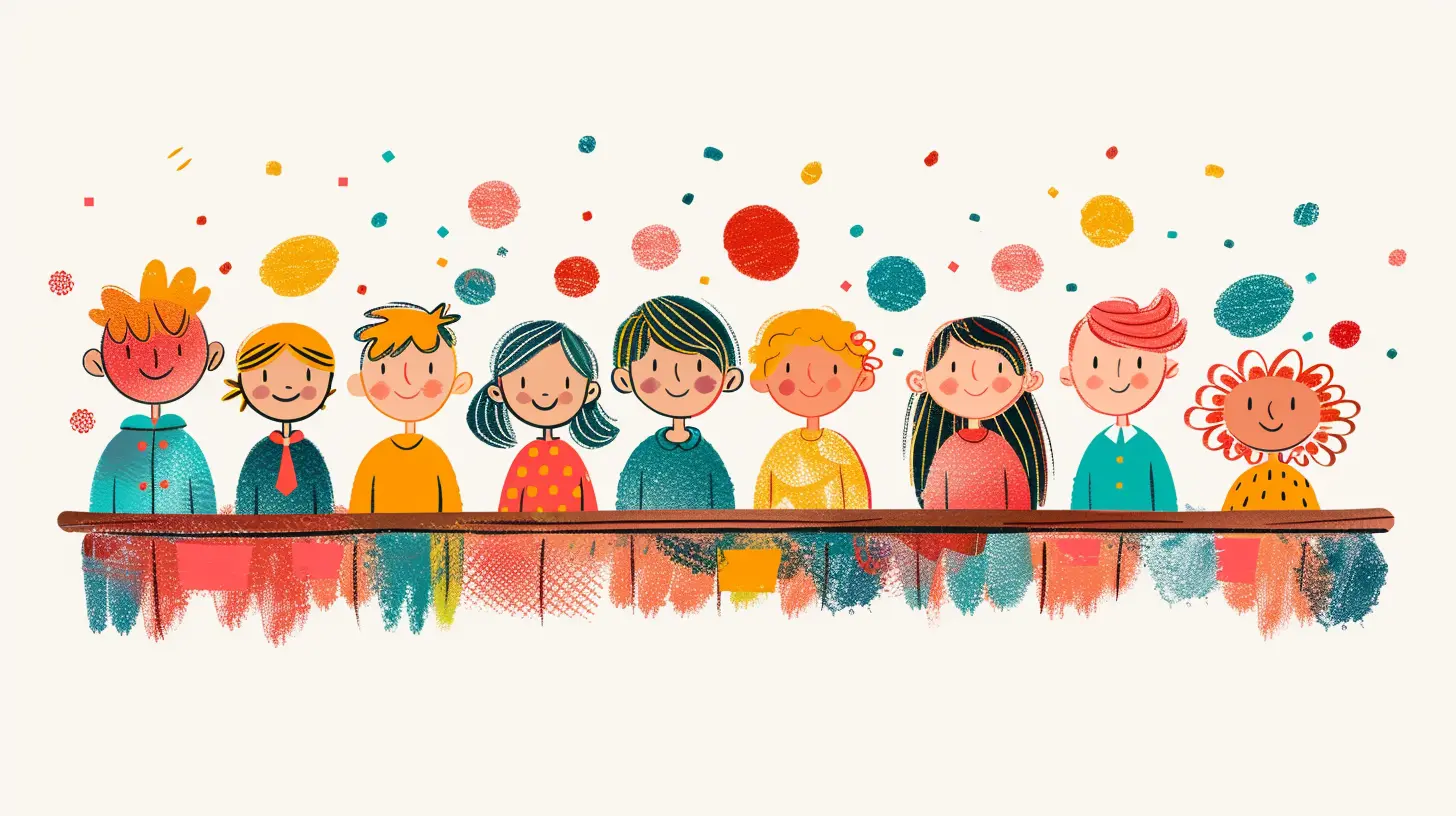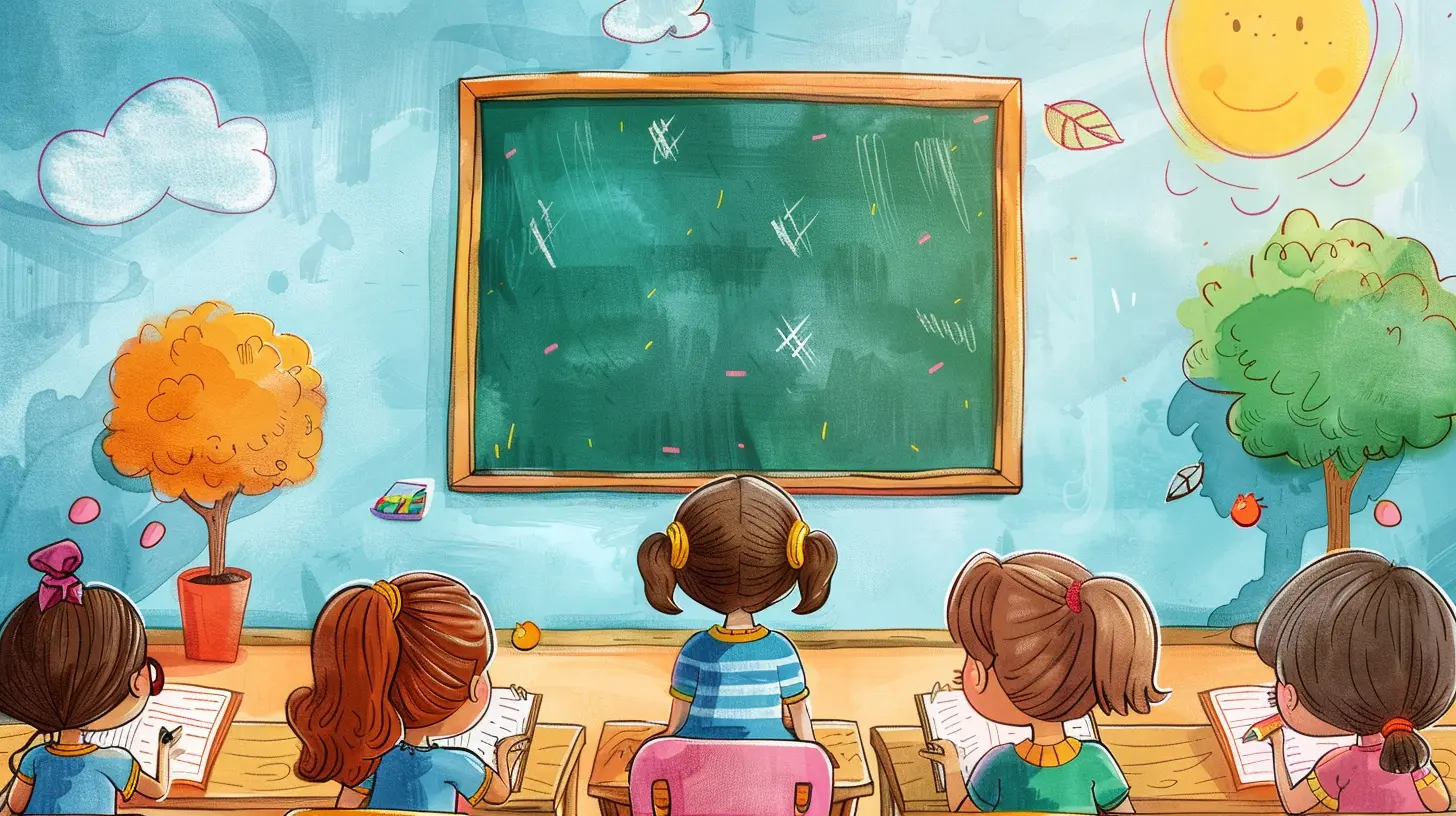Teacher Training for Special Education: Meeting Every Child’s Needs
18 August 2025
Teaching is a superpower. But teaching special education? That’s like being part superhero, part detective, and part best friend all rolled into one. Special education teachers need specialized training to ensure every child—regardless of their abilities—gets the education they deserve.
But what does teacher training for special education really involve? How do we prepare educators to meet the diverse needs of their students? And most importantly, how can we make sure no child is left behind?
Buckle up, because we’re diving deep into the world of special education teacher training, and trust me—it’s a ride worth taking! 
Why Special Education Training is a Game Changer
Imagine trying to open a locked door with the wrong key. Frustrating, right? That’s what it’s like when a teacher isn’t equipped with the right training to support students with special needs.Special education training isn’t just a "nice-to-have"—it’s essential. Teachers must learn how to adapt lessons, use assistive technology, and create an inclusive environment where every child feels valued. Without it, students with disabilities might struggle unnecessarily, missing out on the education they deserve.
But here's the good news: with the right training, teachers become the key that unlocks a world of possibilities for their students. 
Essential Skills for Special Education Teachers
Not all heroes wear capes—some carry lesson plans and a whole lot of patience. Special education teachers need a unique set of skills to thrive. Here are some of the most important ones:1. Patience (and Lots of It!)
Teaching kids with disabilities can be challenging. Progress may be slow, and some days might feel like a roller coaster. But patience is the secret weapon that keeps special education teachers going.2. Adaptability is Everything
What works for one student might not work for another. Great special education teachers know how to pivot, tweak lesson plans, and come up with creative solutions on the fly.3. Communication Skills—Beyond Words
Many students in special education have speech or communication difficulties. Teachers need to master alternative communication methods, whether it’s sign language, picture exchange systems, or assistive technology.4. Collaboration with a Capital C
Special education is a team effort. Teachers work closely with parents, therapists, counselors, and general education teachers to create the best learning experience for students.5. A Heart Full of Empathy
It’s not just about teaching subjects—it’s about understanding what each student is going through and making them feel supported. Empathy can make all the difference in helping students thrive.
Core Components of Special Education Teacher Training
Now that we know why training is crucial, let’s break down what goes into it. Special education training programs focus on several key areas:1. Understanding Different Disabilities
Teachers need to be familiar with a range of disabilities, including:- Autism Spectrum Disorder (ASD)
- Attention Deficit Hyperactivity Disorder (ADHD)
- Dyslexia and other learning disabilities
- Speech and language impairments
- Physical disabilities
- Emotional and behavioral disorders
Each condition requires different teaching strategies, and training ensures educators can meet those needs.
2. Individualized Education Plans (IEPs) & 504 Plans
An IEP is like a personalized roadmap to success for students with disabilities. Special education teachers must learn how to create, implement, and track these plans to ensure students receive the support they need.3. Classroom Management for a Diverse Environment
Managing a special education classroom isn’t just about keeping order—it’s about creating a space where students feel safe and encouraged to learn. Techniques like positive reinforcement, sensory-friendly classrooms, and structured routines help.4. Assistive Technology & Adaptive Tools
From speech-to-text programs to wheelchair-friendly desks, assistive technology is a game-changer in special education. Teachers must know how to use these tools effectively to enhance learning.5. Behavioral Strategies & Social-Emotional Learning (SEL)
Many students in special education have behavioral or emotional challenges. Teachers receive training on how to use strategies like Applied Behavior Analysis (ABA), social stories, and emotion regulation techniques to support students.
Challenges in Special Education Teacher Training
Let’s be real—special education teaching isn’t a walk in the park. There are some real challenges teachers face when undergoing training.1. Overloaded Training Programs
Many teachers feel overwhelmed by the sheer volume of information packed into training programs. Learning everything from legal policies to new teaching methods can be intense.2. Lack of Hands-On Experience
Reading about special education is one thing—being in the classroom is another. Many training programs could benefit from more real-world teaching experiences before teachers take on their own classrooms.3. Emotional Burnout
Special education teachers pour their hearts into their work. But without proper support and self-care strategies, burnout can sneak up fast. Teacher training should also emphasize mental well-being and resilience.The Future of Special Education Teacher Training
As education evolves, so does special education training. Here’s a glimpse of what the future holds:1. More Inclusive Classrooms
The trend is shifting towards inclusion—where students with disabilities learn alongside their peers in general education classrooms. Training programs are adapting to ensure teachers know how to make inclusion successful.2. Technology-Driven Learning
AI, virtual reality, and online learning tools are shaping the way special education teachers are trained. Future educators will have access to cutting-edge resources that make learning (and teaching) more effective.3. Greater Emphasis on Mental Health
Teacher burnout is real, and future training programs are prioritizing mental health support. Self-care, mindfulness, and work-life balance strategies will be key components of teacher training.Final Thoughts
Special education teacher training is more than just a certification—it’s the foundation of a meaningful, life-changing career. Every child deserves a quality education, and with the right training, teachers can unlock their full potential.So, whether you’re considering a career in special education or simply want to appreciate the incredible work these teachers do, remember this: Teaching special education isn’t just a job. It’s a mission. And with the right training, every teacher can truly make a difference.
all images in this post were generated using AI tools
Category:
Teacher TrainingAuthor:

Zoe McKay
Discussion
rate this article
1 comments
Malia Bellamy
Empower teachers, embrace every child's uniqueness!
September 9, 2025 at 2:25 AM

Zoe McKay
Absolutely! Empowering teachers is key to recognizing and celebrating each child's unique strengths and needs in special education.


